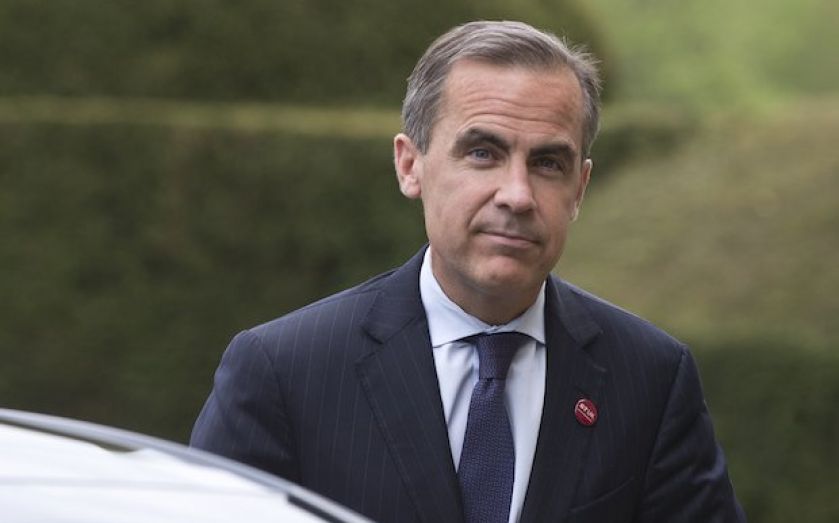The Bank must at least discuss a rate rise: Its credibility is now on the line

THE BANK of England must give serious consideration to raising interest rates. This doesn’t mean it should hike rates immediately. But the conditions under which rates would rise need to be clarified urgently.
Forward guidance is being used to avoid this conversation. Ideally, guidance should be employed to reduce the discretion of policymakers over monetary policy by committing them to known rules. It is now being used to justify discretion. Unfortunately, this has the potential to increase uncertainty, not reduce it. And policy uncertainty (like the ad hoc way in which QE has been applied) has been one of the main factors undermining the recovery.
Look at forward guidance on its own terms, and you can see the case for a imminent rate rise. The two knockout conditions that would make the Bank raise rates sooner than anticipated are threats to price stability and financial stability. Belatedly, the consumer price index is now at its 2 per cent target. But the Bank has itself argued that the inflation rate is not the best measure of price stability. And there is also evidence that on-target inflation won’t last. The average forecaster surveyed by the Treasury thinks inflation will be higher this year than last, and the M&G/YouGov survey shows that inflation expectations are close to 3 per cent over the next five years.
In terms of financial stability, the Financial Policy Committee has pointed out that the removal of some direct incentives for residential mortgages reduced the risk of triggering the knockout. But this also shows that the policies adopted had raised the risk in the first place. In both situations, the knockouts are very much under threat.
That unemployment is falling faster than the Bank anticipated should give it further reason to reflect. When it set an unemployment rate of 7 per cent as a threshold for the end of loose policy, it believed it could wait until 2016 before making a decision. But economists expect it to reach this level this year. In the three months to November 2013, unemployment fell to just 7.1 per cent. Adjusting the threshold, or worse ignoring it, would damage credibility.
The Fed has already started to taper, and a change in the composition of its board (with seats vacant, and a rotation in the voting rights of member boards) could make it more hawkish. In the US, there is a debate about an end to emergency monetary policy, and this presents an opportunity for the UK.
Raising rates is currently taboo, with fear at the very possibility. But this fear may be overblown. Market rates are higher than the rate the Bank controls, and so we shouldn’t assume that any change in Bank rate will pass through into all others. A moderate rise would be passed on to those with mortgages that track the Bank base rate. But if those households can’t afford a moderate rise, they need to confront that problem quickly. The worse thing they could do is believe the Bank’s promise to keep rates low indefinitely.
Increasing rates while the economy is in recovery mode has risks, but growth forecasts are very strong – possibly too strong. We don’t want a consumption-led recovery if it’s funded by drawing down savings. And we don’t want an investment-led recovery if it’s malinvestment. We don’t want to choke the recovery, but we also want a sustainable one. For this to happen, interest rates should reflect the demand and supply conditions in the market, not policymakers’ fears.
Even if we don’t raise rates now, we must start talking about it. For the Bank to help dispel fear, it should confront the issue. It should be clearer about the circumstances under which rates would rise, and the expected timescale. Ultimately, it should be honest with the public that ultra low rates won’t last forever. In fact, they may be over sooner that you think.
Anthony J Evans is associate professor of economics at ESCP Europe Business School.